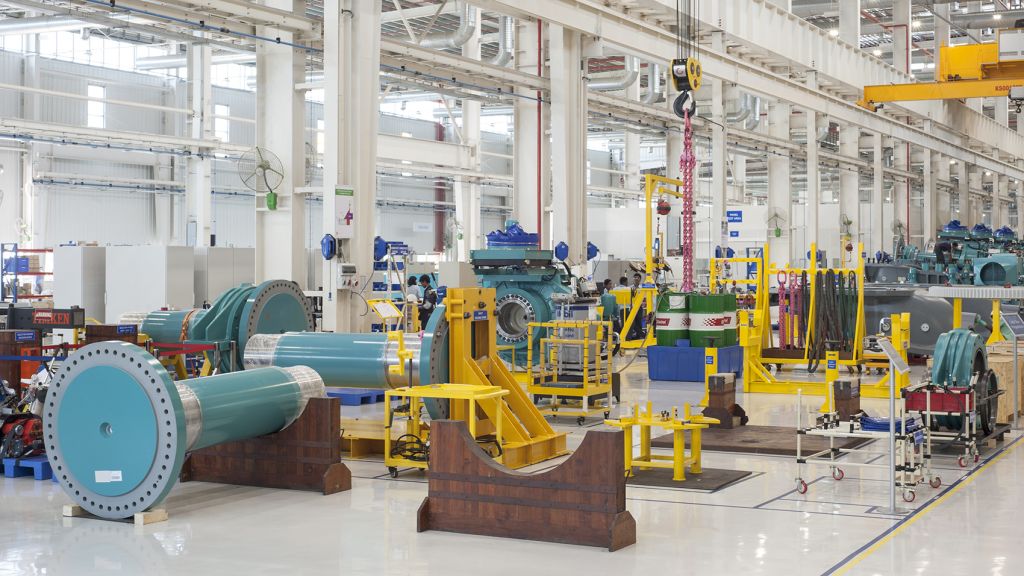In the past, manufacturers utilized strictly on-premise software that required specialist to have to come in and fix any issues at the site the software was implemented within. In recent years with the development of technologies, there has been a new emergence of technologies and softwares within the manufacturing industry that utilize cloud-based technology.

This software has particularly been useful within ERP or Enterprise Resource Planning. Cloud ERP and on-premise ERP both have benefits and the best choice for your facility depends entirely on your organization’s structure and strategy. Cloud-based ERP software is becoming much more common and utilized within manufacturing operations that are seeking to boost efficiency within their operation and ultimately maintain a competitive edge. Within this blog, we are going to discuss the advantages associated with Cloud-Based ERP and how it will affect your overall supply chain and production process within your manufacturing operation.
5 Benefits of Cloud ERP
The five benefits associated with cloud ERP pertain to the following:
- Enhanced Business Intelligence - Cloud technology enables organization to be able to access data remotely without complex technical configuration or robust IT staffing. Over the last few years, companies and facilities utilizing business intelligence within a cloud setting has doubled. This is because data storage and access is simplified and has several advantages over on-premise ERP software. Cloud technology is able to store larger amounts of data and may be able to provide access to data gather through IoT technology.
- Implementation Speed Increase - Implementation speed is always an aspect to consider when implementing a new software. Cloud ERP systems are able to be implemented much quicker than on-premise ERP systems. The technical environment for cloud technology may be able to be configured in as little as 24 hours. This will give organizations the ability to focus on the business side of transformation and how to enhance other areas of an operation.
- Cost Savings - Cost savings is one of the most important aspects within any manufacturing operation. Cloud technology enables your operation to become much more efficient and locate areas of waste within a facility. The initial cost of cloud technology is also lower than on-premise technology. While subscription costs add up over time, there are many CFOs that are more concerned with minimization of capital expenditures than reduction of operating costs.
- Data Security - In order to avoid security breaches, many organizations tend to turn to cloud ERP as cloud vendors tend to have secure hosting environments. While some CIOs still worry about the security of the cloud, they do not realize how vigilant cloud ERP vendors can be when it comes to security because stakes are so high. Cloud vendors have a lot to lose and are popular targets for security breaches, which is why vendors are so focused and devoted to sophisticated security.
- Focus on Core Competencies - Many organizations lack sufficient IT staffing or are unable to afford the same resources and infrastructure as cloud providers. While an organization may be skilled at IT, it is not necessarily its core competency. Cloud technology enables organizations to outsource their IT function and focus on their core business.
Utilizing Cloud-Based ERP technology is essential for manufacturing operations that are seeking to enhance their operation as a whole. A software that is able to be integrated with cloud-based ERP software is Advanced Planning and Scheduling Software (APS). Advanced Planning and Scheduling (APS) Software enables for thorough visibility into your production facility and locates areas that are seeking to eliminate waste, enhance profitability, cut costs, and eradicate bottlenecks. APS Software is a must for modern-day manufacturers and are consistently increasing efficiency within operations around the globe.
Advanced Planning and Scheduling Software
Advanced Planning and Scheduling (APS) software has become a must for modern-day manufacturing operations due to customer demand for increased product mix and fast delivery combined with downward cost pressures. APS can be quickly integrated with a ERP/MRP software to fill gaps where these system lack planning and scheduling flexibility and accuracy. Advanced Planning and Scheduling (APS) helps planners save time while providing greater agility in updating ever-changing priorities, production schedules, and inventory plans.
- Create optimized schedules balancing production efficiency and delivery performance
- Maximize output on bottleneck resources to increase revenue
- Synchronize supply with demand to reduce inventories
- Provide company-wide visibility to capacity
- Enable scenario data-driven decision making
Implementation of Advanced Planning and Scheduling (APS) software will take your manufacturing operations to the next level of production efficiency, taking advantage of the operational data you already have in your ERP.
Related What If Video
APS Resources
Topics: ERP




















LEAVE A COMMENT